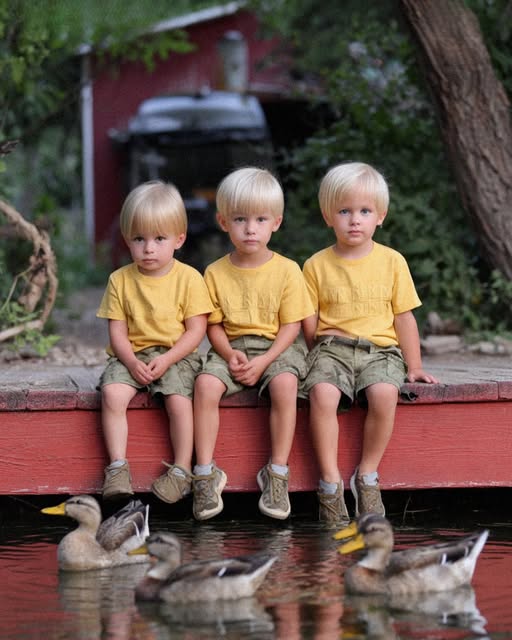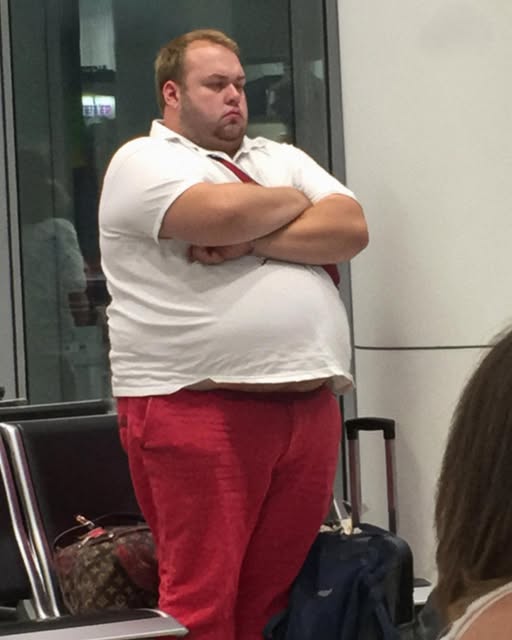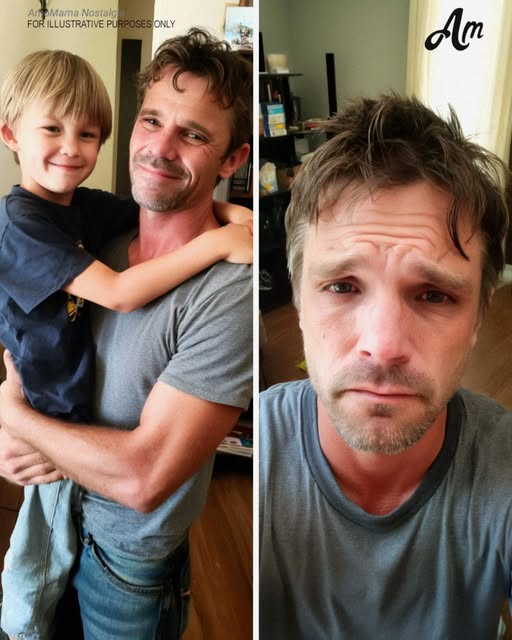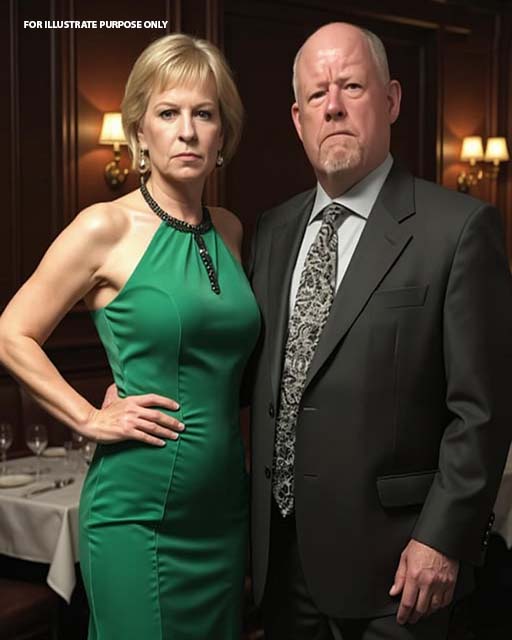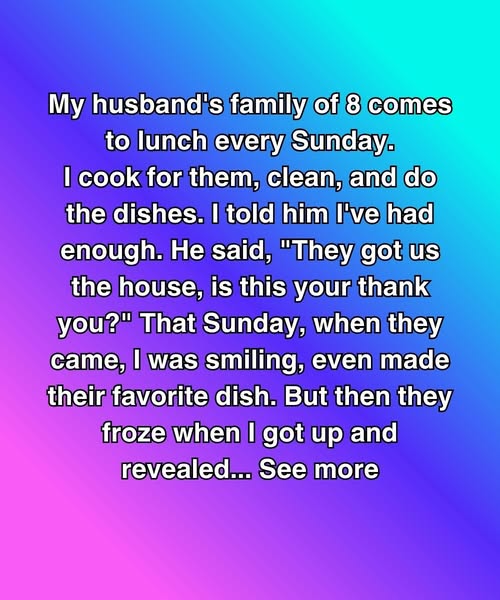I’m Carlyle. I spent six decades turning a tiny machine shop into a $4.3 million empire. My wife, Marcy, was the quiet engine of the whole thing—packing orders at midnight, taking calls at dawn, and reminding me to eat when the numbers went red. We gave our two children—Caroline and Ralph—everything we never had.
When I had a minor stroke six months ago, the housekeeper found me on the study floor. Two weeks in a hospital bed taught me just how loud a room can be when no one visits. Caroline called once to say work was crazy. Ralph sent flowers and a generic card. That was it.
Three months later Marcy fainted in the garden. Stage four. “Maybe three months,” the oncologist said, and tried to look confident. I called the kids. “Your mother is dying,” I told them. They promised to try. They didn’t come.
I held Marcy’s hand the morning she left. Sunlight reached across the floor, touching the edge of her favorite rug, and she was gone. Two days later, the phone rang. I picked up, hoping it was one of them, ready to grieve together. It was my lawyer, uneasy.
“Your children have been calling,” he said. “Not about the funeral. They want to know if you’re… still alive. They asked for your will.”
I sat in the quiet and felt something old and heavy inside me click into place. I called him back an hour later. “We’re changing the will,” I said. “They get nothing.”
He cleared his throat. “Then who?”
“Three boys,” I said. “Triplets. Seven years old. Names are Kyran, Kevin, and Kyle.”
“We’ve never discussed—”
“I know. Draw it up. And help me become their guardian.”
There were meetings and background checks and social workers who looked at my birth date like a stop sign. “Sir, you’re eighty-seven,” one of them said gently. “Why these boys?”
“Because I owe them,” I told her, and left it there.
Caroline found out before I could tell her myself—my lawyer’s son has a looser tongue than his father. She called at dawn, voice sharp enough to cut glass. “You can’t do this. We’re your blood.”
“You are,” I said. “But blood didn’t show up when your mother needed it.”
Ralph arrived the next afternoon and let himself in like he was still twelve. “You’ve lost your mind,” he said. “You’ve never even met them.”
“They’re Samuel’s great-grandsons,” I told him. “Sit down.”
In 1944, a grenade landed in our foxhole. Samuel didn’t think. He covered it. Three of us lived because he didn’t. He was twenty-seven. I married Marcy because of that moment. Built a business. Raised children. Lived to eighty-seven. Those boys lost their parents in a hurricane last year. Both sets of grandparents are gone. “He gave me a life,” I said. “The least I can do is give them one.”
The day they arrived, my hands wouldn’t stop shaking. We’d made up three small rooms—airplanes on one duvet, dinosaurs on another, a shelf of picture books that still smelled like new ink. The bell rang. They stood in the doorway with backpacks that looked too heavy for their shoulders. Kyran held a battered toy plane. Kevin watched everything, quiet and deliberate. Kyle clutched a blue blanket and kept his eyes on the chandelier as if it might fall.
“Hello, boys,” I said, lowering myself into a chair so I wouldn’t loom. “I’m Carlyle. If you’d like, this is your home now.”
“Why do you want us?” Kevin asked, not rudely. Just a boy who’s learned to expect the next move.
“Because you deserve a family,” I said. “And I’d like to be that for you.”
Kyle came forward first and put his small hand in mine. Behind me, someone gasped. I turned to see Caroline and Ralph frozen in the parlor doorway, mouths half-open, fresh outrage dying on their tongues.
“This is insane,” Caroline whispered. “You can’t raise three kids at your age.”
“I can,” I said. “With help. And I will.”
The boys explored like careful cats. Kyran pressed his face to the glass to see the garden. Kevin traced book spines with a fingertip. Kyle sat on the bottom stair and smiled at nothing in particular.
In the weeks that followed, the house woke up. Shoes appeared in a heap by the door. Laughter ricocheted off the hallways. I learned the difference between a “good” dinosaur and an unforgivable one. We did spelling at the dining table and folded paper airplanes that refused to fly straight. I told them about Samuel—how he ran toward danger and I’ve been trying to live worthy of it ever since. They listened like boys do when they understand the story isn’t really about the past, but the promise someone’s making them now.
The kids stopped calling. Their attorney sent a letter threatening to contest the will. Mine sent one back. Then, unexpectedly, Caroline came alone. I was helping Kyle sound out words when the housekeeper led her in.
“Can we talk?” she asked, smaller than I’d ever seen her.
I sent Kyle to find his brothers. Caroline sat. “Do you really love them the way you love us?”
“Love isn’t a pie,” I said. “And you don’t get more by acting entitled to it.”
Her eyes filled. “So we lost you.”
“You lost me when you traded family for ledger lines,” I said, not unkindly. “You can still choose better. The door isn’t locked.”
A few days later, Ralph returned with his wife. They got down on the floor and built a fortress out of blocks. Kyle knocked it over. Everyone laughed and built again. Later, Ralph confessed he’d hired a private investigator to find dirt on the boys so he could kill the inheritance. Instead he found their parents’ obituary—died saving neighbors during the flood—and Samuel’s citation. He stared at his shoes. “I was ready to destroy them for money,” he said. “I’m sorry.”
“Good,” I said. “Now be better.”
Six months in, we have routines. Kyran wants to be a pilot. Kevin disappears into books and comes back with questions that make me wish I’d paid more attention in school. Kyle sticks close and asks about Marcy—the color of her apron, the way she hummed while she cooked. I tell them everything. On Sundays, Ralph and his wife take the boys to the park. Caroline brings over small gifts and tries. It’s awkward, but real.
My body is giving me little warnings now—forgetting what a set of stairs used to feel like, taking longer to catch my breath. I make more lists. I sit on the porch with Kyle’s head on my shoulder while the other two dive-bomb each other with foam planes, and I think about a young man in a muddy field and the promise I never said out loud: if I live, I will spend that life on purpose.
Do I regret disinheriting my children? Only that I waited so long to remember what family really means. Your name on a bank statement isn’t a legacy. The people who carry your love forward are.
Kyran, Kevin, and Kyle call me Dad now. Not always. Not every sentence. But enough. And when it’s my turn to go, I’ll close my eyes knowing the last piece of Samuel’s gift didn’t stop with me. I made sure it kept going.
